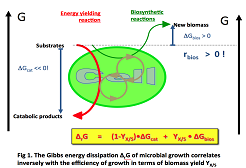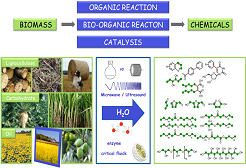Day 2 :
Keynote Forum
Urs von Stockar
Swiss Federal Institute of Technology, Lausanne (EPFL), Switzerland
Keynote: Biothermodynamics: Bridging thermodynamics with biochemical Engineering
Time : 10:00-10:40

Biography:
Urs von Stockar has been professor of chemical and biochemical engineering since 1977 and has conducted research on gas-liquid mass transfer, integrated bioprocessing and biothermodynamics. Since 2007 he is honary (emeritus) professor at EPFL. He served as adjunct professor at Dublin City University from 2007 to 2014. He is a personal member of the Swiss Academy of Technical Sciences and is a member of their board. He was the Chairman of the European Federation of Biotechnology in 1996-97.
Abstract:
Thermodynamics has had an enormous impact on a very wide variety of fields, including chemical engineering. Systematic application of chemical thermodynamics to process technology is one of the reasons why petrochemical processes can often be developed with a bare minimum of experimental work. In biochemical engineering the state of matter is radically different. The need for experimental trials is so overwhelming in bioprocess development that more often than not extensive use is made of high-throughput experimental platforms. However, more systematic application of thermodynamics in bioprocess development might obviate a substantial fraction of this tedious experimental work. This presentation will offer an overview of biothermodynamics and the contributions it could make to different areas of biochemical engineering.
Biothermodynamics may be subdivided into 3 large areas according to the scale used to formalize the description of the biological system. The most fundamental level uses a system description at the molecular level, and thus concerns mainly biomolecules. It is the best-developed area of the three and has many practical applications such as DSP and biomolecule stability and activity. However, when studying the behavior of live cells it is more appropriate to adopt a coarser level and to describe the thermodynamics of whole metabolic pathways. This area was mainly developed for systems biology and has proven useful in metabolic engineering and synthetic biology. Finally, when dealing with live cultures the thermodynamic description often has to be even further simplified by treating whole cells as black boxes. This type of analysis has been shown to be able to approximately predict important culture performance parameters such as growth and product yields, and maximum specific growth rates. Gibbs energy analysis shows that the efficiency of microbial metabolism is fundamentally limited by maintenance requirements, like in the design of technical systems such as heat exchangers and distillation columns.

Keynote Forum
Christophe LEN
Sorbonne Université, France
Keynote: Bio-based chemistry in water: Future perspectives in catalysis
Time : 11:00-11:40

Biography:
Christophe Len received his Ph.D. from the University of Picardie-Jules Verne (UPJV) in Amiens (France) under the supervision of Professor P. Villa in the field of carbohydrate chemistry. In 2010, CL became full Professor at the University of Compiegne - UTC (France). The principle interests of Christophe Len are organic synthesis including the reactivity of biomass-derived molecules (glycerol, fatty acids, lignin, cellulose) for the formation of new chemical bonds. His scientific work has been published in around 137 original international publications and review articles, 3 chapters and 6 patents including publications in high profile journals.
Abstract:
The design of environmentally friendly methodologies has been the driving force of scientists in recent years. In particular, the use of biomass-derived materials, green solvents and alternatives techniques has been investigated.
In this conference, several green chemistry approaches that target advanced synthesis and processes will be presented. These approaches include: (i) green synthesis of quinoline and phenanthroline derivatives in sole water using microwave irradiation and high temperature/pressure;(ii) production of furfural from D-xylose, xylane and hemicellulose via homogeneous and heterogeneous catalysis using microwave irradiation and high temperature/pressure; (iii) conventional micellar catalysis and magic photochromic micellar catalysis.
Conception, synthesis and physico-chemical properties will be detailed.

